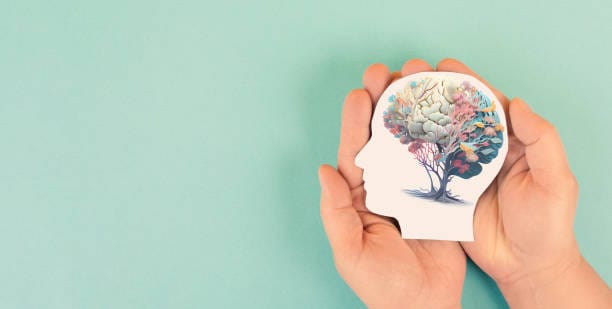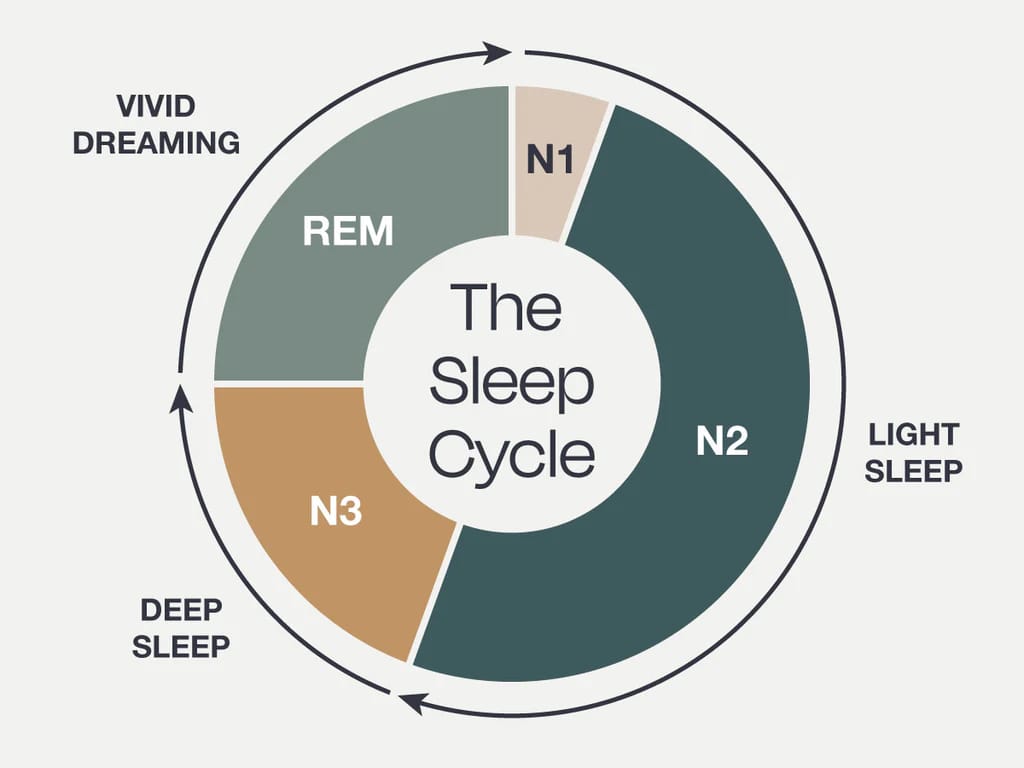- Aeviva
- Posts
- Are Your Dreams a Window Into Your Mental Health? 💤
Are Your Dreams a Window Into Your Mental Health? 💤
Dreams may reveal more than you think—explore the science behind sleep and its surprising connection to mental health. 🌙

Are Your Dreams Telling You Something? What Science Says About Sleep and Mental Health.
Have you ever woken up from a vivid dream and wondered what it meant? 🛌 Science suggests that dreams aren’t just random stories your brain tells at night—they’re deeply connected to your mental health. From stress signals to emotional processing, your dreams might hold clues about your well-being. 🌟 Let’s uncover the fascinating link between sleep, dreams, and your mental state.

The Sleep App That Forbes Rated 5 Stars 😱
The app Forbes said helps "users achieve high-quality sleep by creating and maintaining effective sleep routines.” is back with new sounds and features!
Now featuring over 300 unique sounds to fall asleep to, a personalized sleep tracker and more. It’s no wonder over 65 million people have downloaded this app for better sleep.
Try it tonight 👇
The Science of Dreams: What’s Happening in Your Brain?
Dreams occur primarily during REM (rapid eye movement) sleep, a stage where your brain becomes highly active. 🧠 During REM, your brain processes emotions, consolidates memories, and organizes unresolved thoughts. Emotion regulation is one of the most important roles of dreaming, as it helps your brain reset after stressful experiences. Additionally, REM sleep enhances creativity and problem-solving, often leading to moments of insight or inspiration. Recurring or disturbing dreams may even act as stress signals, alerting you to unresolved challenges in your waking life.
💡 Did You Know? The average person spends about 2 hours dreaming each night, amounting to over 6 years of dreams in a lifetime! 🌌
How Mental Health Affects Your Dreams
Stress and Anxiety: High stress levels often lead to vivid, intense, or unsettling dreams, reflecting your brain’s attempt to process overwhelming emotions. 😰
Depression: Those with depression often experience shorter REM cycles, which can lead to fragmented dreams and less emotional processing.
PTSD Nightmares: Recurrent nightmares are common in individuals with PTSD, as the brain struggles to process traumatic events. 😴
💬 Real Experience: “During a tough time in my life, my dreams became chaotic and unsettling. It was only when I addressed my anxiety that I started sleeping—and dreaming—peacefully again.” —Emma, 29.
The Hidden Benefits of Dreaming
Dreams do more than mirror your mental state—they actively support your health. For instance, dreaming plays a key role in reducing the intensity of difficult emotions, acting as a natural form of therapy. 🛠️ It also aids in memory retention by helping your brain sort and store important information, ensuring you wake up sharper and more focused. 🧩 Surprisingly, dreams are often the birthplace of creative breakthroughs, with countless innovations and ideas—like Einstein’s theory of relativity—traced back to them.

💡 Fun Fact: Research shows people who get a full night’s sleep retain information 40% better than those who are sleep-deprived. 🛌
Improving Your Sleep for Better Dreams
Stick to a Schedule: Go to bed and wake up at the same time daily to regulate your sleep cycles. ⏰
Create a Dream-Friendly Environment: Keep your room cool, dark, and tech-free for optimal rest. 🌙
Mind Your Diet: Avoid caffeine and heavy meals close to bedtime, as they can disrupt REM sleep. 🥤
Relax Before Bed: Activities like journaling or meditation can help calm your mind, reducing the likelihood of stress-fueled dreams. 🖋️
💡 Pro Tip: Keeping a dream journal can help you notice patterns and better understand what your dreams might be telling you. 📖
Try Our Dream Journal Challenge!

Curious about what your dreams are saying? Here’s a fun way to find out:
Step 1: Keep a notebook or use a notes app by your bed. 📱
Step 2: As soon as you wake up, jot down any dreams you remember—no detail is too small!
Step 3: Note how you felt during and after the dream. Was it comforting, stressful, or inspiring? 😌
Step 4: Look for recurring themes or emotions over the week.
🏆 Challenge Goal: Reflect on how your dreams connect to your waking life. Share your insights with us using #DreamJournalChallenge and inspire others to explore their mental health through dreaming! ✨
Your dreams aren’t random—they’re your brain’s way of processing emotions, solving problems, and reflecting on your mental state. 🌟 By paying attention to your dreams and improving your sleep quality, you can unlock valuable insights into your well-being. Start listening to what your dreams are telling you—you might be surprised by what you discover. 🌌
Take-Home Message
Dreams occur during REM sleep and are essential for emotional processing. 🛌
Stress, anxiety, and depression can influence the intensity and content of your dreams. 😴
Dreams can help regulate emotions, boost creativity, and aid memory retention.
Improving sleep quality enhances your ability to dream and process emotions effectively. 🌙
Keeping a dream journal is a simple way to uncover patterns and better understand your mental health. 🖋️



Reply